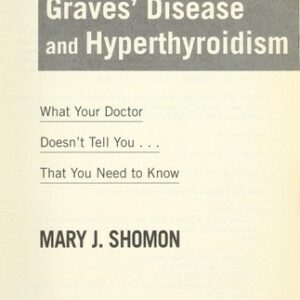A Travel Guide to Heaven
$15.00
| Title | Range | Discount |
|---|---|---|
| Trade Discount | 5 + | 25% |
- Description
- Additional information
Description
A recent Newsweek poll reports that 76 percent of Americans believe in heaven. Yet even avid believers have difficulty conjuring up more than vague images of halos, harps, and wispy angels in flowing robes. Anthony DeStefano knew there had to be a more complete, meaningful, and comforting vision of what heaven is like, and A Travel Guide to Heaven is the entertaining and enlightening result.
Using the Bible as his guide, the author notes that heaven is not only a spiritual place, but also a physical place, a fabulous “luxury resort” more sumptuous than any on Earth. The residents are real, their bodies transformed into their most perfect selves—physically, emotionally, and spiritually. By making a spiritual subject immensely physical, the book provides a picture of amazing places to visit, things to do, luxuries for pampering—not to mention deep, abiding joy.
Combining the clarity and logic of C. S. Lewis with a terrific sense of fun and adventure, DeStefano creates a brilliant, reassuring portrait of heaven, a place that has intrigued and puzzled humankind throughout history. With its clear view of the afterlife, A Travel Guide to Heaven might best be compared to James Van Praagh’s Talking to Heaven or Betty J. Eadie’s Embraced by the Light in its tremendous message of comfort and reassurance.Anthony DeStefano is the bestselling author of over twenty-five Christian books for adults and children. His nonfiction adult books have been published in eighteen different countries and twelve different languages. A native New Yorker, Anthony attended Stuyvesant High School in Manhattan, where his English teacher, Frank McCourt, Pulitzer Prize–winning author of Angela’s Ashes, sparked his interest in becoming a children’s book author. In fact, Anthony wrote his first picture book, Little Star, as an assignment for one of McCourt’s writing classes. Three decades later it was finally published and became a bestseller. Anthony is an avid pilot and successful businessman. He lives in New Jersey with his wife, Jordan.CHAPTER 1
Welcome to Paradise!
When you ask people what they think heaven will be like, most struggle to find a clear answer. Instead of giving you a definite response, they usually grope for various adjectives. These almost always include words like cloudy, hazy, white, and dreamlike. Sometimes people will tell you they picture heaven as being infused with "incredibly intense light." Whatever you imagine heaven to be, chances are that one of the first words that comes to your mind is spiritual.
When we do allow ourselves to describe heaven in a material way, we usually think of angels or saints walking around wearing long white robes and choirs singing in the background. The only activity we imagine these strange beings engaging in is never-ending worship of some invisible God, who is as cloudy, nebulous, and undefined as heaven itself.
And then we wonder why no one is excited about traveling to this place!
Well, the first thing to do before we begin our trip is to get the picture of robes and choirs out of our minds altogether. Many of us have such a monumental misconception about heaven that it severely limits our capacity to imagine it, much less look forward to it. The reason is partly that the entertainment industry has programmed us to picture heaven in a very cartoonish way, with clouds, harps, halos, and the like. The real culprits, however, have been poets. Down through the ages, poets have attempted to capture the joy, rapture, and happiness of heaven by giving us an abundance of "ethereal" images. These images, while designed to elevate our souls and show us a glimpse of the transcendent nature of heaven, often have the opposite effect–they leave us flat, dry, and bored.
Now, I am not disparaging poets. They have merely tried to do to heaven what they do to everything else: reduce it to its elemental truth. But in this cynical, skeptical, practical age of ours, we don’t necessarily want the elemental truth. We already know that heaven is "paradise" and that we’re going to experience "ultimate joy" when we get there. What we desperately want to know is the specifics! We want to know how we’re going to be so happy there.
Do you want to understand heaven better than you have in your entire life? Do you want to have a true experience of heaven, right this second? You can without reading another chapter. Simply try this experiment: Take the page you’re reading and crinkle the corner. Now listen to the sound it makes. Then grab the chair you’re sitting on with your hand and squeeze. Feel how hard it is. Then take a deep breath and let your lungs fill with air. Smell the odors of the room you’re sitting in. Finally, look around and see all the various shapes and colors of the objects that are before you.
I’ll tell you a secret: heaven is going to be like that. Heaven is physical.
Don’t misunderstand me. That’s not all heaven is. Heaven is radically, amazingly, incredibly different from the room you’re sitting in. If it weren’t, it would hardly be worth the trip. But we have to start with the basics. Before we discuss all the exciting and transcendent spiritual aspects of the place, we need to get straight, once and for all, this fundamental truth: Heaven is, at its core, not only spiritual, but material as well.
If the great monotheistic religions of the world–Judaism, Christianity, and Islam–have taught us anything at all, it’s that God is a God of creation. He loves to make things. From the very beginning of the Bible to the very end, God has been busy creating all sorts of wonderful objects: galaxies, stars, planets, oceans, canyons, forests, animals, fish, human beings. You name it, he’s created it. And he’s always busy using those things to accomplish his will. Very rarely does he snap his fingers and make something appear out of thin air. He usually employs the help of one of his creations to bring about the change or effect he wants. In other words, he usually uses physical means to do the things he wants.
Now, do you really think God is going to abandon his love of creating and his love of the physical, just because this little world of ours comes to an end? Do you think that after all he’s done throughout the course of history, he’s going to make heaven some cloudy, hazy dreamland? Of course not. That’s not the way he operates. Nor is it what the Bible or Christianity teaches.
While Christian theologians have certainly used poetic language to expound upon the spiritual aspects of heaven, for two millennia they have also insisted that heaven will have physical characteristics as well. Indeed, just like the exotic ports of call here on earth, heaven will have its own distinct climate, landscape, and population. Christ himself used very physical images to describe heaven. He said, for example, that in his Father’s "house" there are many "mansions," and that he was going there to prepare a "place" for us. In the Book of Revelation, that point is driven home yet again. Even though the biblical description of heaven makes ample use of both literal and symbolic imagery–complete with streets made of gold, pillars made of pearls, and walls adorned with jewels–there can be no doubt that heaven is going to be very tangible. It will be a visible locality, made up of visible structures and materials, with real dimensions and distances.
For some reason, this truth hasn’t resonated fully with most people. Yet, it is absolutely essential for all of us to grasp. In fact, if you get nothing else out of this book, understand this one fundamental Christian belief: while heaven is a spiritual reality, it is also very much a place. It is real and it is physical. In some mysterious way, we will be able to touch it, feel it, smell it, hear it, and see it. That means that the life we’re going to lead there–despite its transcendent spiritual quality–is going to be much more like the life we’re leading now than most of us have ever imagined.
But what about my uncle who passed away last year? What about my grandparents who died when I was little? What about all the good and holy people who have died in the whole history of the world? Are they experiencing heaven as a physical place right now?
The answer to these questions is: no, not yet. And before we go any further, it’s important to explain why.
There are two fundamental ways of using the word heaven. When someone we love dies, we often say we hope that person has "gone to heaven." And of course that may be true. Heaven isn’t just a place of the future. Heaven exists now. Heaven is the word we use to describe the place where God is at this very second. If our friends and relatives who died before us were judged by God as worthy to enter paradise, it’s perfectly accurate to say that they are in heaven. As you are reading these very words, your grandmother, your father, your aunt, or anyone else you love who has died may be experiencing the incredible, ecstatic happiness of living with God. But while this is true in the deepest sense, it’s also true–as Augustine, Aquinas, and all the great eschatological theologians have said–that they are not yet experiencing heaven to the fullest degree possible.
That’s because human beings are comprised of both bodies and souls. When we die, the two are separated–temporarily. Christianity has always taught that on the day of the Last Judgment–at the end of the world–all those who have died will rise, in the same way that Christ did. At that moment, our bodies and souls will be joined again, never to be separated. Before that takes place, however, there will be a period of waiting–a period of time before we get our physical bodies back.
During this interim phase, it won’t be possible for us to have all the pleasures of heaven. The reason, as we’ve noted, is that heaven, ultimately, will be physical as well as spiritual–and you need a physical body to fully enjoy a physical environment. You might say that heaven is like a five-star hotel. Just after we die, we can check into a beautiful suite and enjoy many amenities that will make our stay wonderful; but later on–when we’re whole again–we’ll be invited into the gorgeous penthouse, and be able to experience all the new and exciting sensory pleasures that the entire resort has to offer.
Unfortunately, we have to wait until the resurrection for that "reunion" of body and spirit to take place. How long will that wait be? Only God knows the answer. It may be a few centuries, it may be a few hours. Nor can we venture to guess what that wait will feel like to us. Once our souls are separated from our bodies, we will be outside of all time and space. If your mother died fifty years ago, there’s no way of knowing if her soul has experienced the passage of time in the same way that you have. Who can say for sure if fifty years of "earth time" will feel like fifty years of "heaven time"? It may not. It may, in fact, seem much shorter. As St. Peter said, with God, "one day is like a thousand years, and a thousand years like one day."
And yet, there’s no doubt that this interim period frightens a lot of people. In fact, it can be downright terrifying if all we imagine death to be is darkness and silence. What we sometimes forget is that we do have something to compare the experience to.
Everyone knows what it feels like to be separated from our bodies, because everyone knows what it feels like to dream. Think about this for a moment. When you are sound asleep in bed, your body motionless, you know that in your mind you can be a thousand miles away, sailing on a boat, floating through the air, laughing with your friends, having a perfectly wonderful time. Sometimes, just before you wake up, you may even realize you are dreaming. You may actually be aware that you are in bed and that what you are seeing in your mind’s eye is part of a fantasy world.
Regardless of this knowledge, however, the colors you’re seeing are just as vibrant, the sounds you’re hearing just as clear, the emotions you’re feeling are just as genuine. Best of all, the you that is living in the dream is really you.
Sometimes these nocturnal musings are so pleasant that we experience a tremendous feeling of disappointment when the alarm clock goes off and rudely calls us back to reality–and to our bodies. We’ve all felt this letdown at one time or another. The point to keep in mind is that when this happens, we are witnessing firsthand the possibility of experiencing "bodily" sensations without ever moving our limbs or opening our eyes.
Likewise, the period during which our bodies and souls are separated need not be a source of great apprehension to us. The same God who gave us the power to see, hear, and feel things as we sleep will also give us the power to "sense" things as we await the resurrection.
In fact, there’s a tremendous amount of real happiness we can have even before we get our bodies back–starting with being with God and with the spirits of our friends and relatives who have died. That’s why I know that my saintly grandmother–whose soul I’m confident is in heaven, but whose body has been buried in the ground for four decades–is doing just fine now. I know that she is enjoying incredible company with her dad and mom and siblings, that she can see me and see what’s going on in my life, and that she is enjoying all the many gifts, graces, and pleasures that God is bestowing on her spirit.
For the purposes of this book, however, we are not going to speculate too deeply on the exact nature of these kinds of out-of-body joys. Nor are we going to launch into a discussion about subjects that have been sources of serious disagreement between Christian denominations (purgatory, for example). Without downplaying the importance of such doctrinal differences, I want to be clear about this one point: the heaven that we will be traveling to in the pages that follow is our final destination, it is the heaven that we will enjoy after the Last Judgment; the heaven we will experience bodily; the heaven whose existence is universally believed in by all Christians; the heaven that you and I will hopefully be permitted to enter one day, at the end of the world.
If that heaven is in your travel plans today, then let’s not waste any more time. The flight attendants have closed the cabin doors, and the control tower has cleared us for takeoff.US
Additional information
| Weight | 7.2 oz |
|---|---|
| Dimensions | 0.5500 × 5.4800 × 8.2200 in |
| Imprint | |
| Format | |
| ISBN-13 | |
| ISBN-10 | |
| Author | |
| Audience | |
| BISAC | |
| Subjects | spiritual books, bible, touching, infinity, scripture, religious gifts, religious books, Christian books, REL036000, inspirational gifts, inspirational books for women, inspirational books, life after death, down to earth, speculation, conversation with god, eschatology, be a better person, meeting god, Quincy Jones, Susan Lucci, guide, theology, christian living, angels, Christian, christianity, REL012000, religion, inspirational, simple, happiness, jesus christ, research, spiritual, death, imagination, Afterlife, heaven, faith, entertaining, gratitude |











